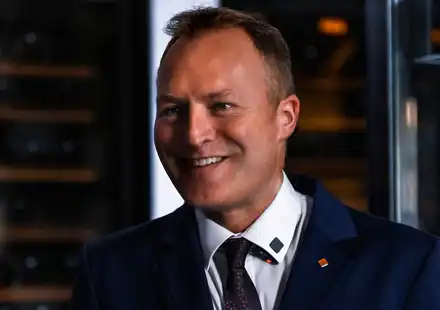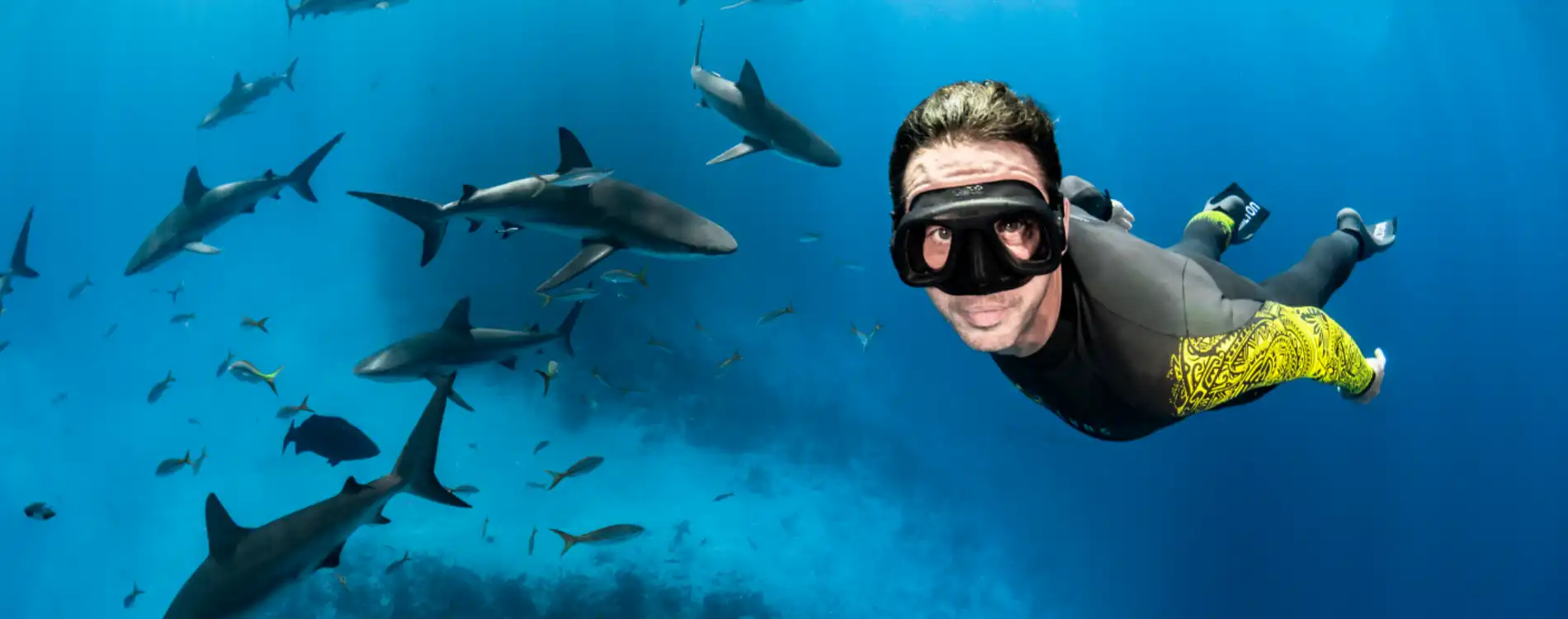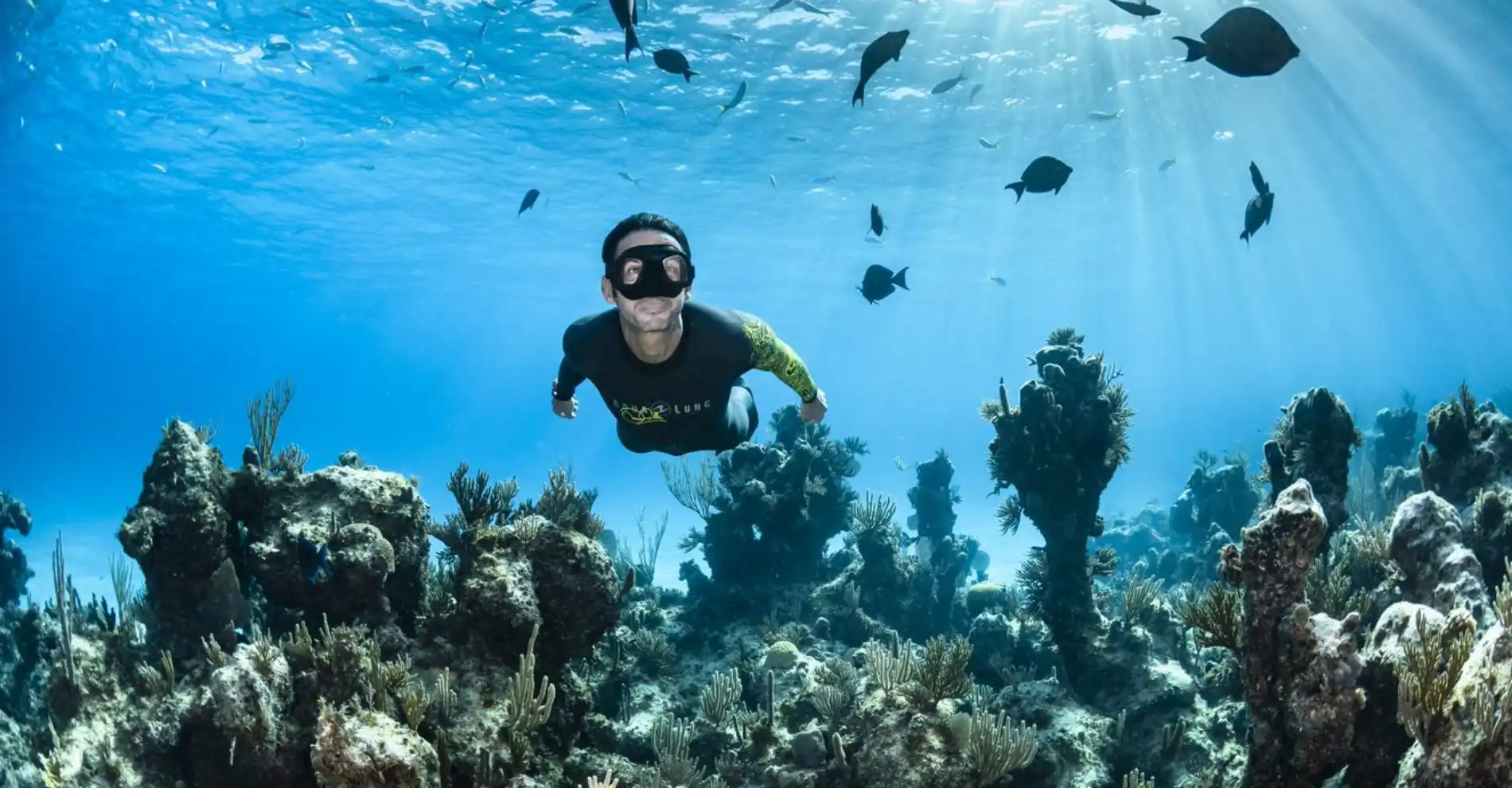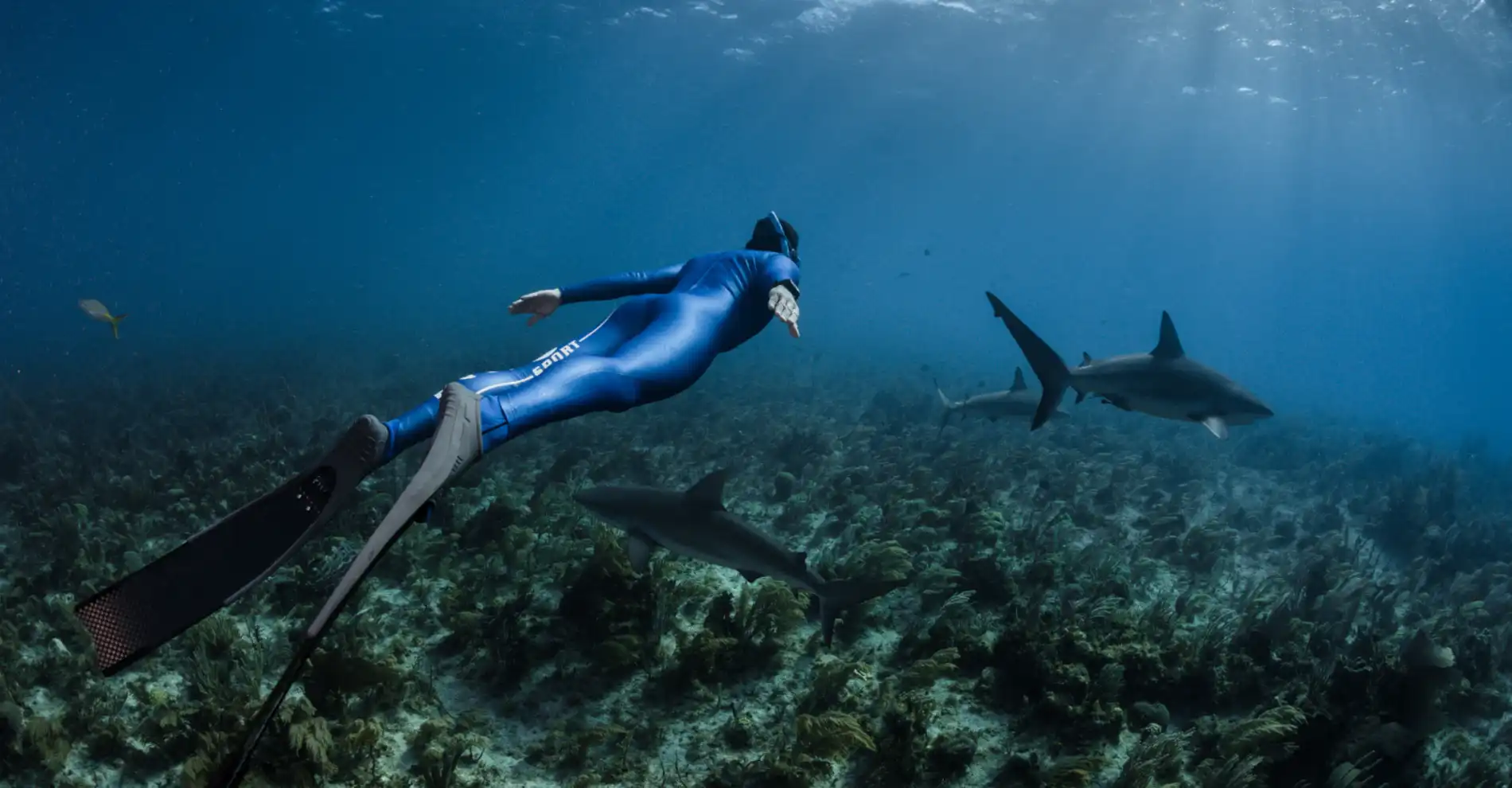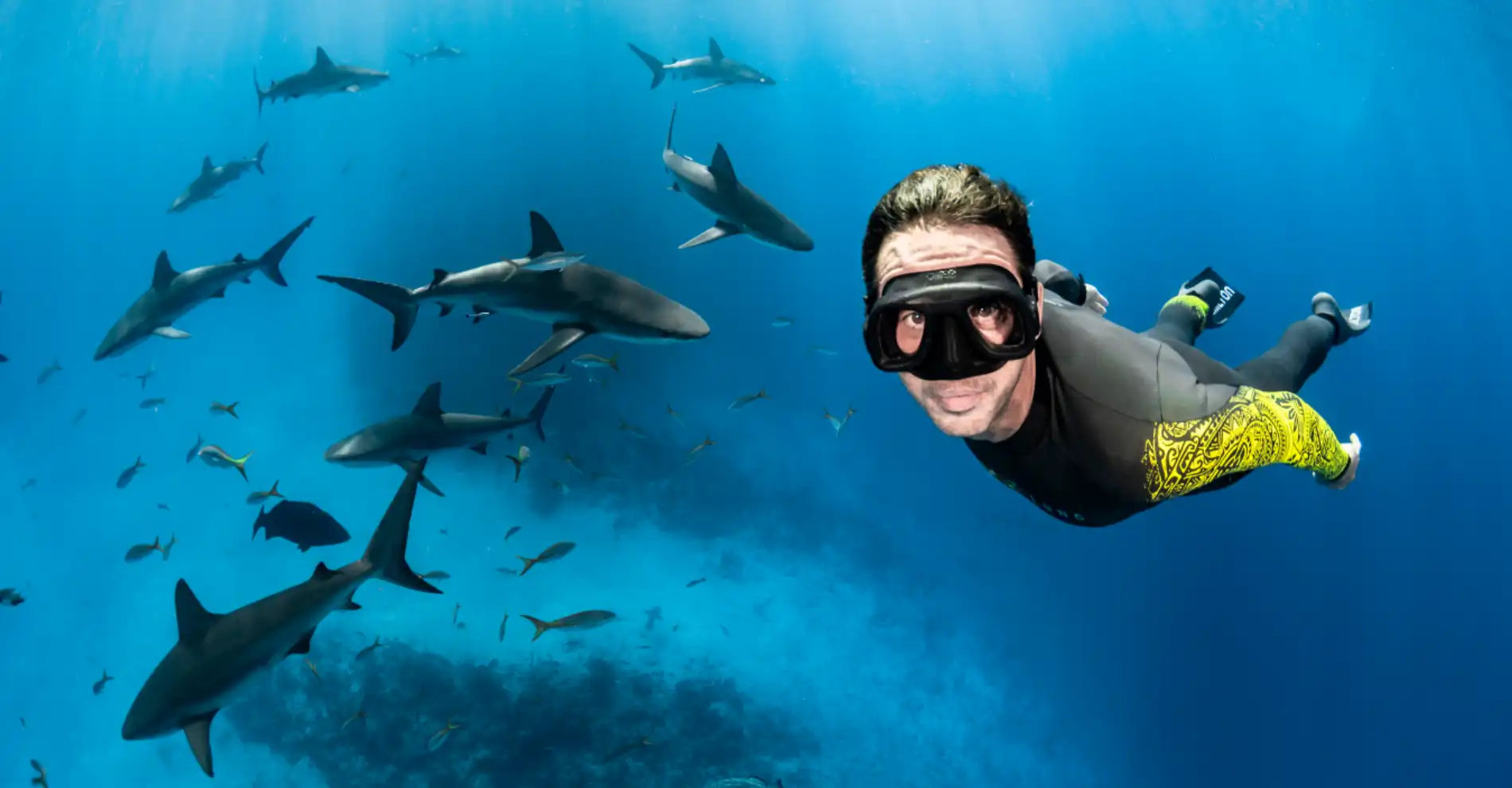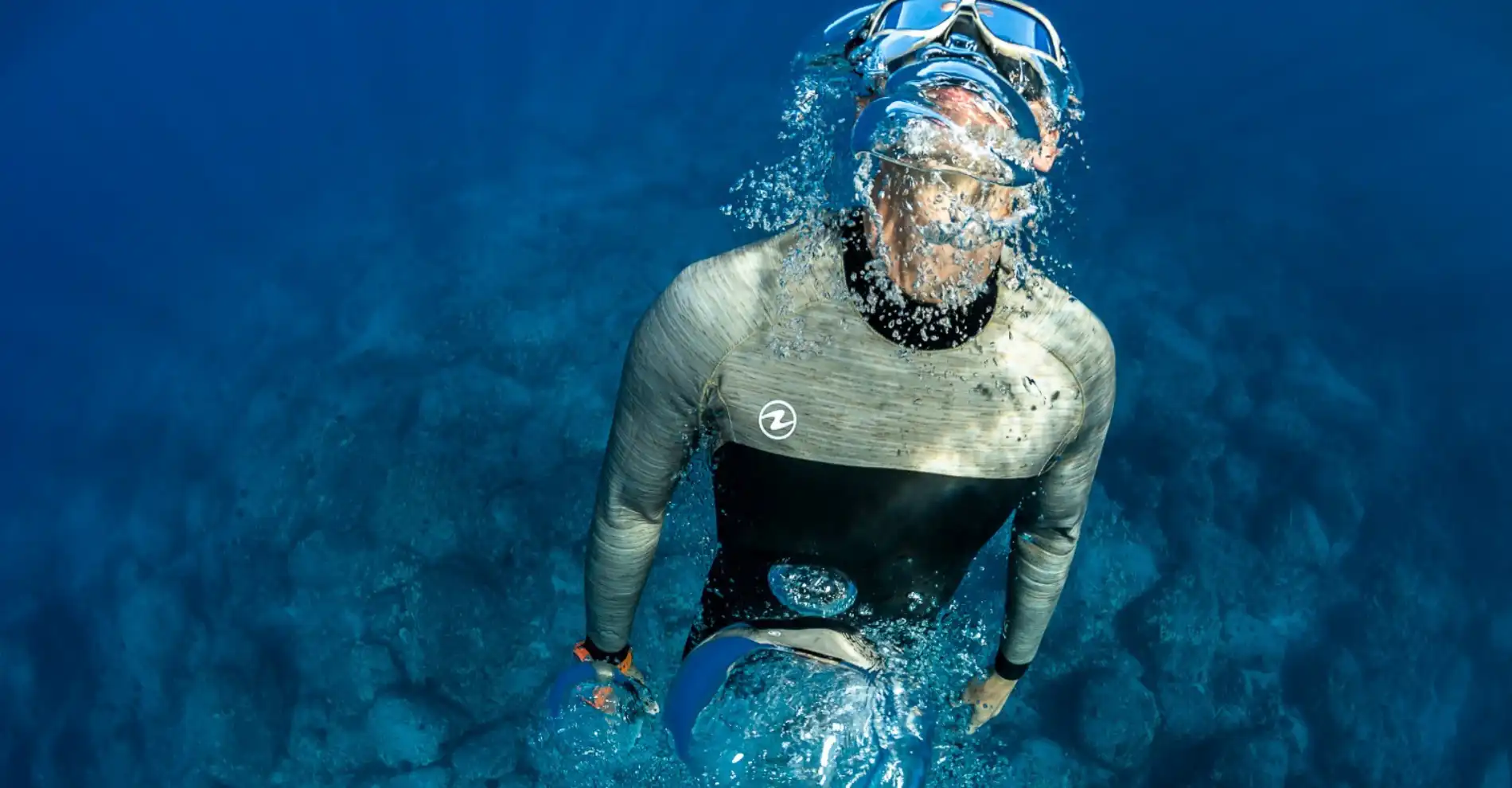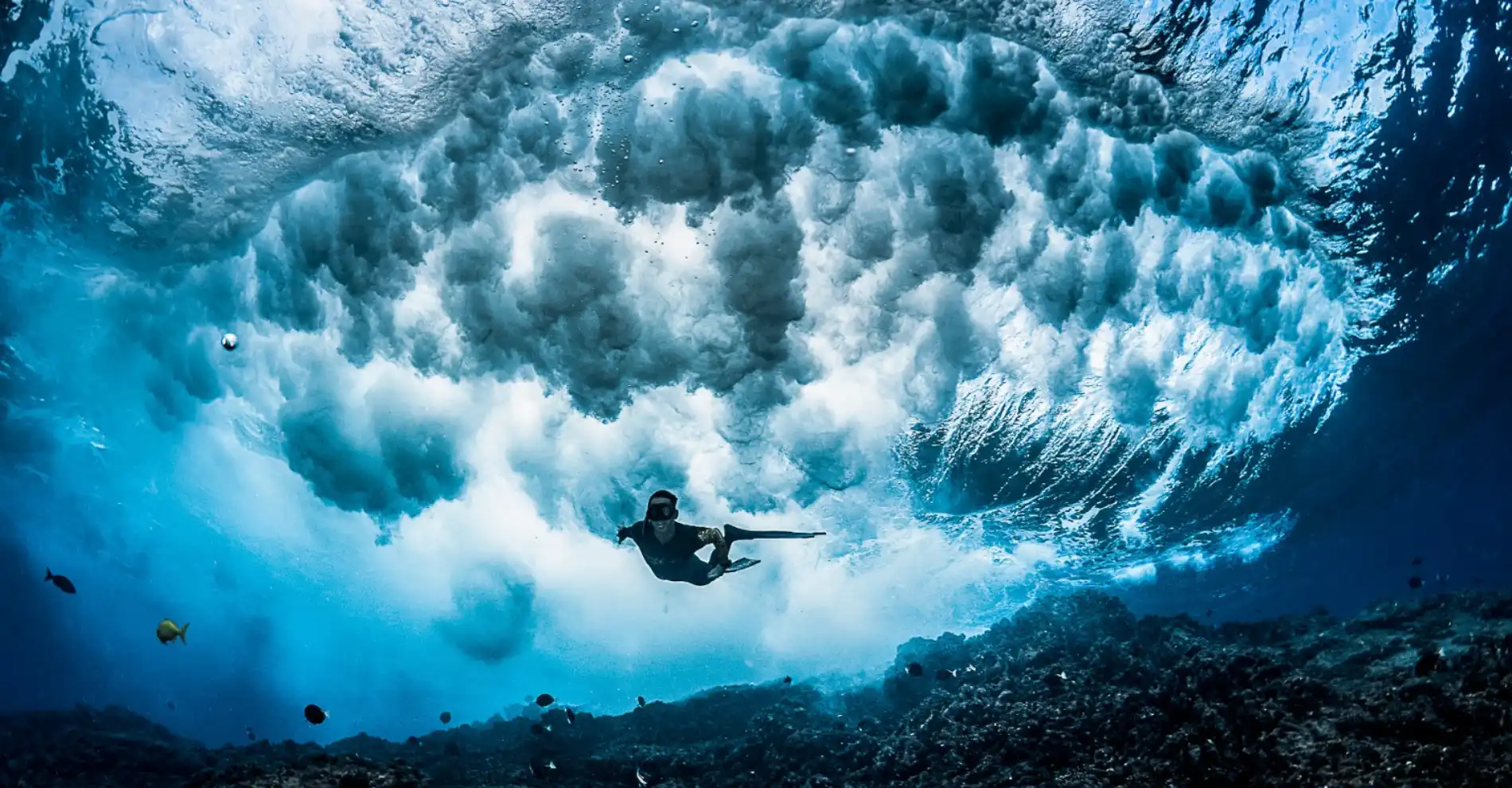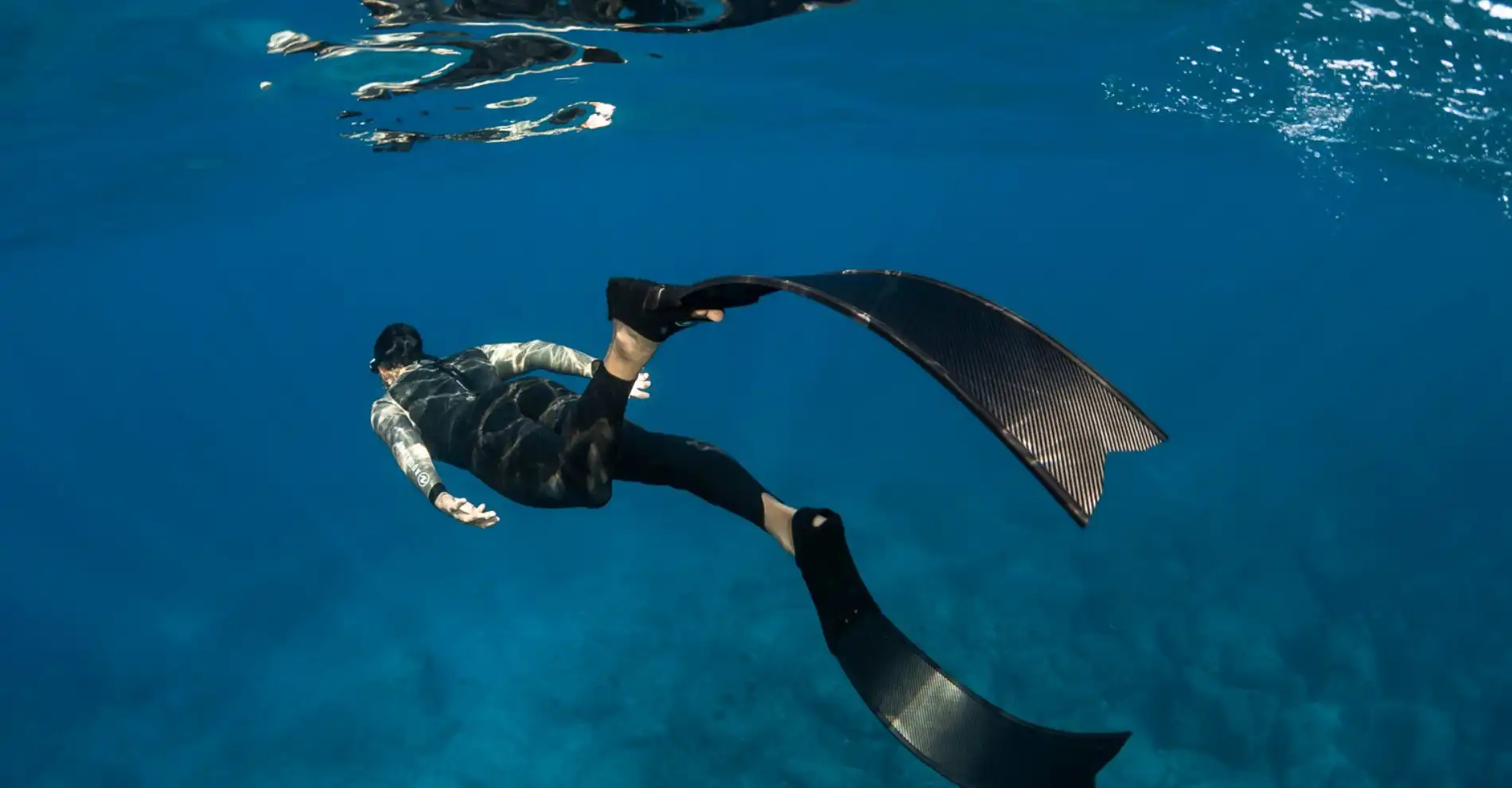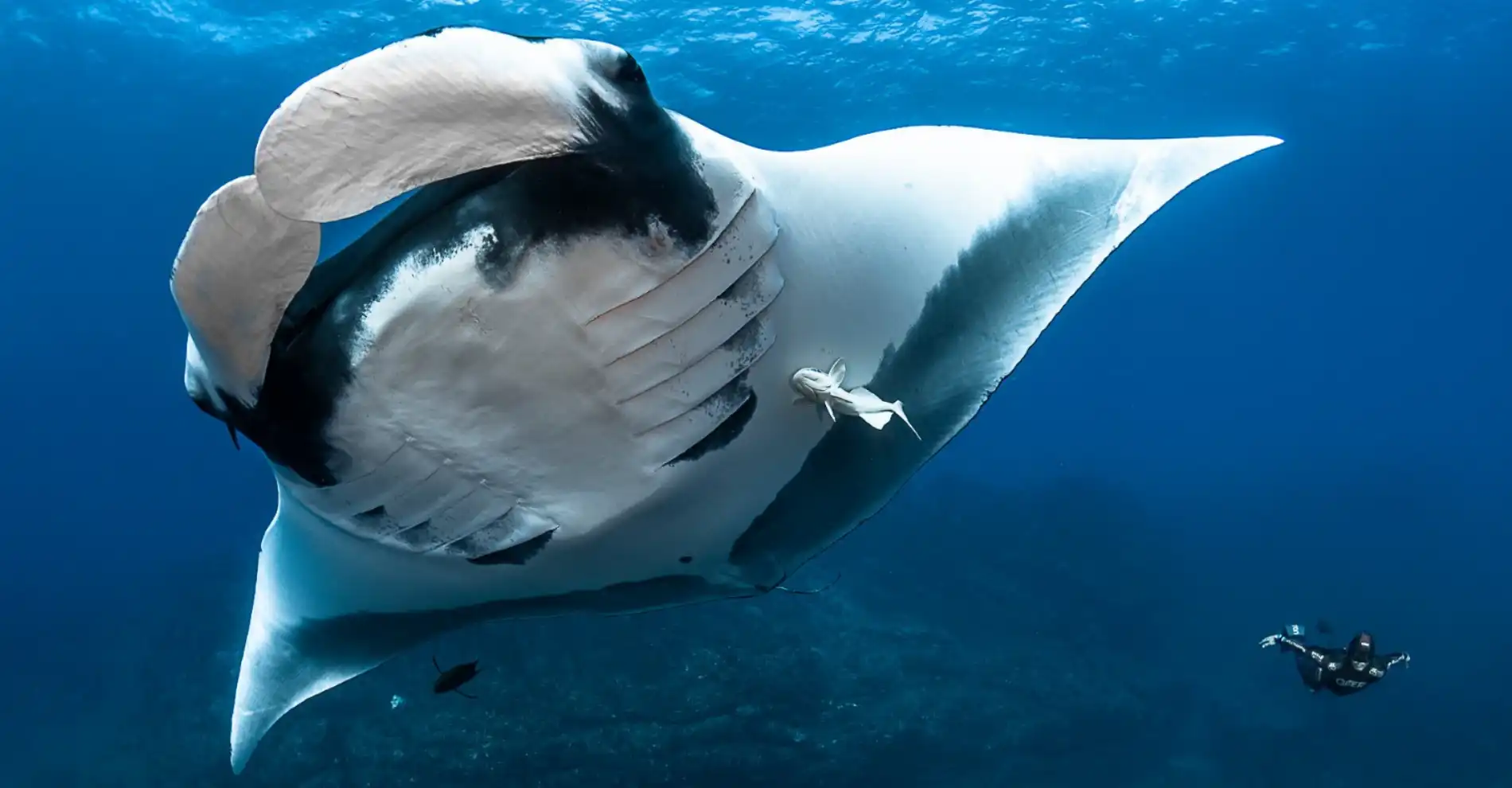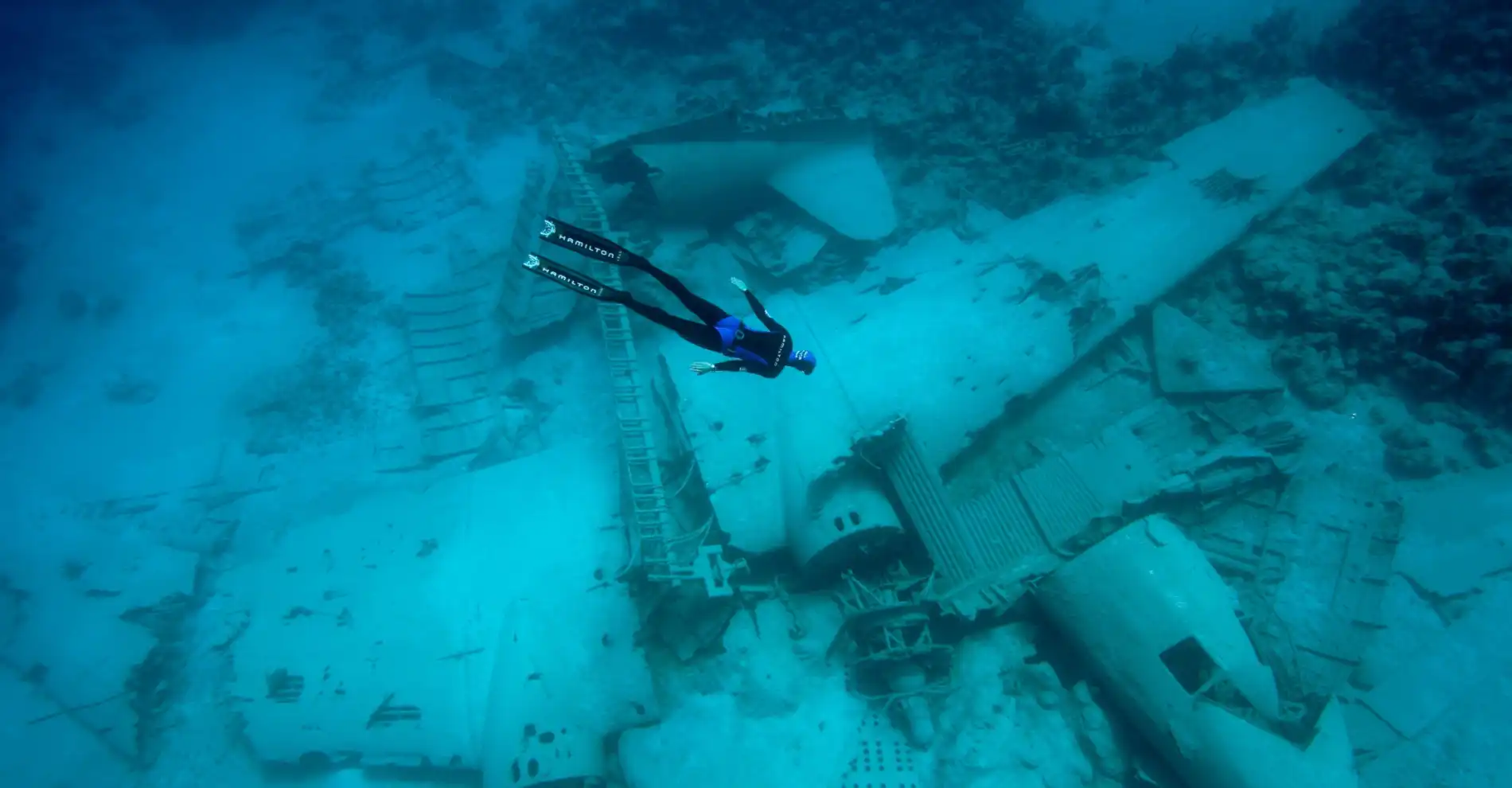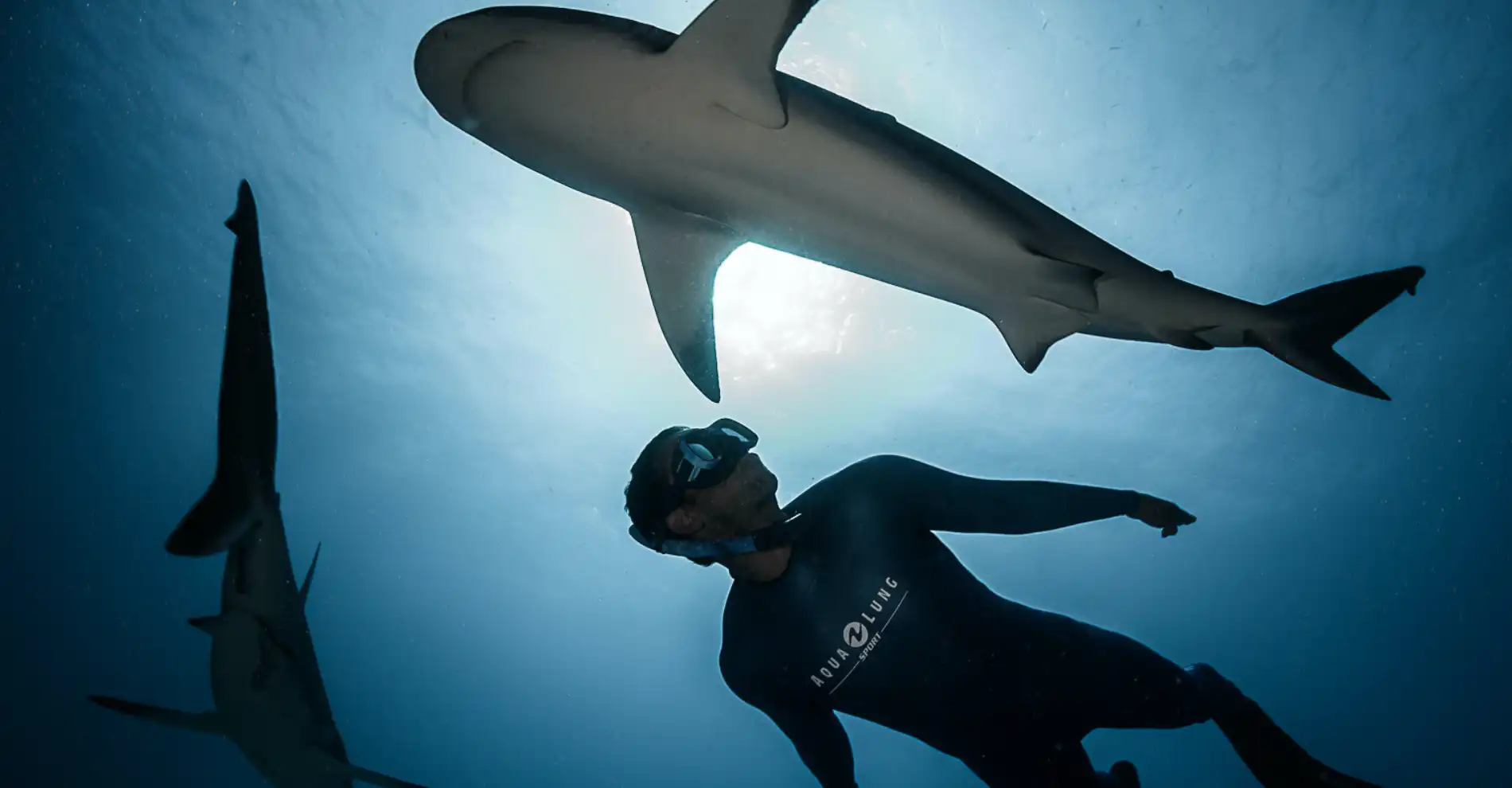Published on March 06, 2023Updated on April 25, 2023
A freediving world record holder, entrepreneur, teacher and speaker, and also Monegasque and a passionate defender of the planet… Pierre Frolla is a man of many facets. Hyperactive and scared of nothing. The ambassador of the The Sea is Green programme talks to us about his involvement with Monte-Carlo Société des Bains de Mer, and we take the opportunity to discuss the sea, diving and some of his most memorable experiences. Let’s dive in.
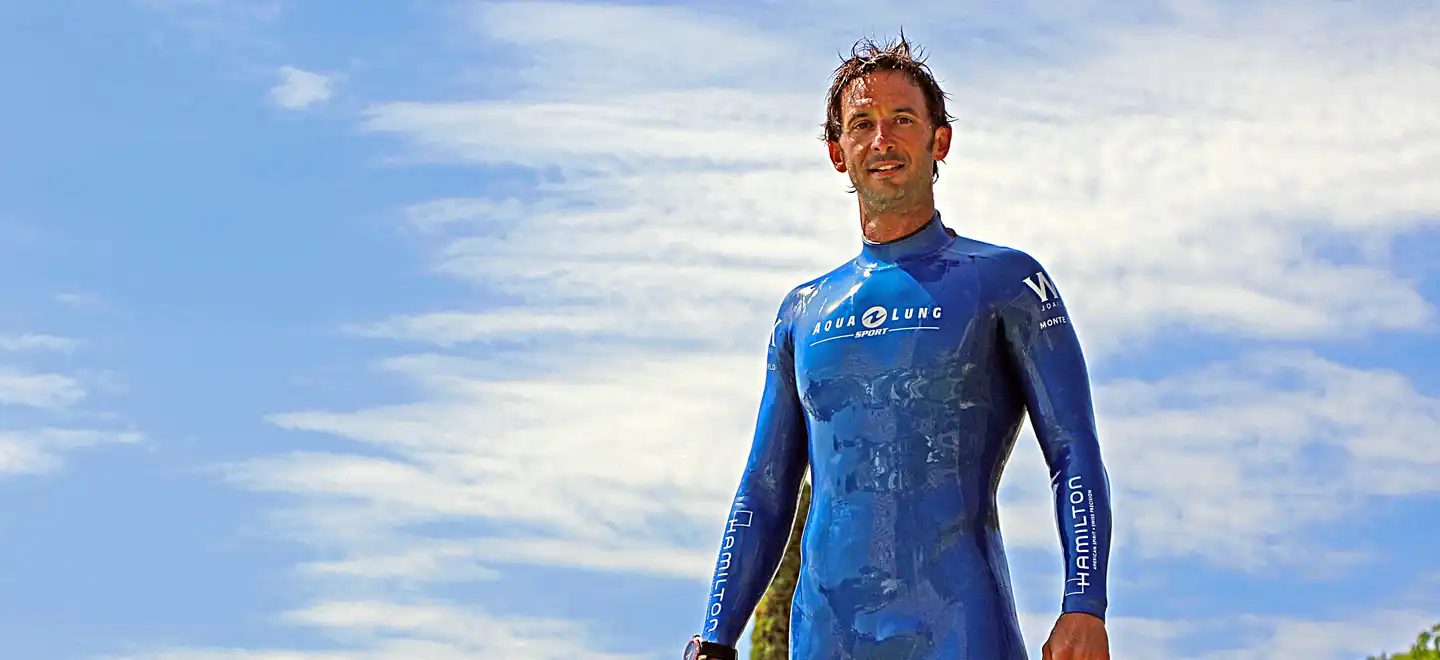
You have been described as the “most hurried man in freediving”. How is this paradox possible?
Pierre Frolla: I think it is a response to a need I have. I have a very hyperactive character. I have always been very creative, artistic, competitive too. I like competition, but above all I like winning, succeeding. Even when I was very young, for me there was only one place on the podium: first. For me second place was first loser. That mindset is really good for achieving great things, but that way you leave yourself no room for error. Which is in itself an error! I therefore needed to balance out this aspect of my character, and naturally I turned to an activity that fulfilled me and helped me grow: freediving, which requires a very particular type of introspection. Like all human beings, I have a need to find myself. I experience that when freediving, but also in the mountains, on long hikes. A few hours are enough for me to take stock.
What ties do you have to the Mediterranean Sea off Monaco?
Pierre Frolla: It is my own “Proust’s madeleine”, something from my past that anchors me, gives me very strong roots. I am from an old Monegasque family. My entire family tree, all the way back, has its roots in Monaco. My grandfather’s brother, who was a priest, even wrote the Monegasque grammar! Therefore, Monaco also has quite a significant importance for me from a historical point of view. And then, all my firsts took place just down from where I lived, below the Oceanographic Museum. Although I’ve travelled all over the world, dived in amazing seas with surprising animals, I feel very strong ties to the sea in Monaco.
A spot where you like to dive in Monaco?
Pierre Frolla: Below the Oceanographic Museum, where I first began underwater fishing. I took my first students there to discover the underwater world. In 2012, with Prince Albert II, we even moved a wreck there to create an ecological bridge in the form of a boat. Another spot that I love is the protected area that goes from the Larvotto beach to the Monte-Carlo Beach.
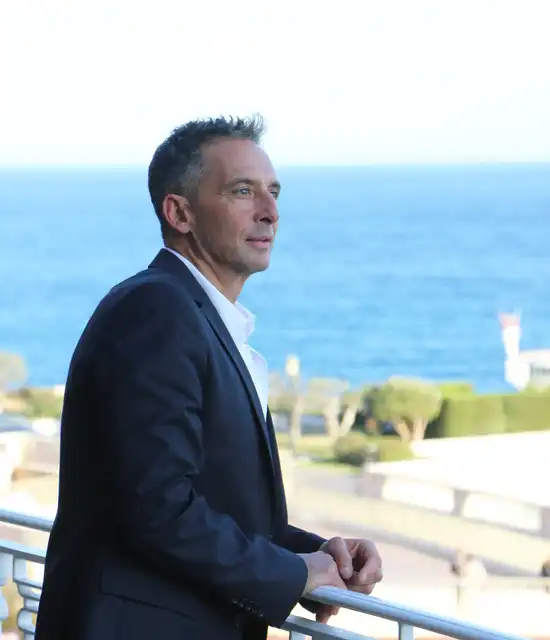
What is your relationship with the fauna you encounter when you are diving? Do you feel like a stranger or like one of them? Safe or in danger?
Pierre Frolla: A bit of all those things. But more than anything, during physical activities in nature you become aware of yourself in that element. When you dive in a natural element, like the sea, it is not by any means a return to wildness or nature, on the contrary. You are diving into an environment that is not your own. Our problems are nothing like those of wild fauna. Practically no one on earth wakes up in the morning scared of being eaten by a bear, no one has to fight or forage to find food or spend two hours lighting a fire. So when you return to a natural environment, you have to go as someone who is simply contemplating it, like an explorer, an adventurer, someone who is curious.
Picture: Pierre Frolla, ©Alexis ROZENFELD
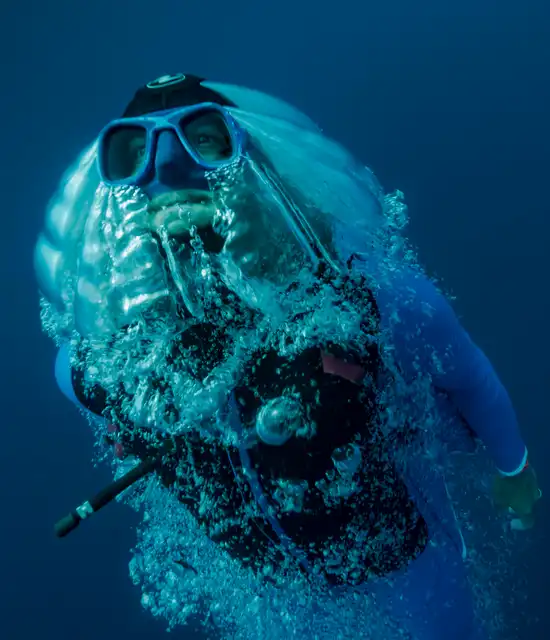
What is the difference between freediving and scuba diving in terms of experience?
Pierre Frolla: The way you approach the surroundings is completely different. When you are scuba diving, it is “easier” as you have air, you can stay underwater longer, stop somewhere, come back to the same place… All the great marine observations have been made during scuba diving, for example in Cousteau’s time. However, freediving requires coordination and self-awareness, as well as the skills required to propel yourself and hold your breath. It takes a very long time to learn how to do it, to then spend only what is quite a short period of time underwater. It is easier to observe large animals (like whales, sperm whales, sealions) when freediving as you do it from the surface. And you don’t make any bubbles, you make very little noise, you are less bulky, so you are more fluid. Freediving is an interesting way to be accepted by animals.
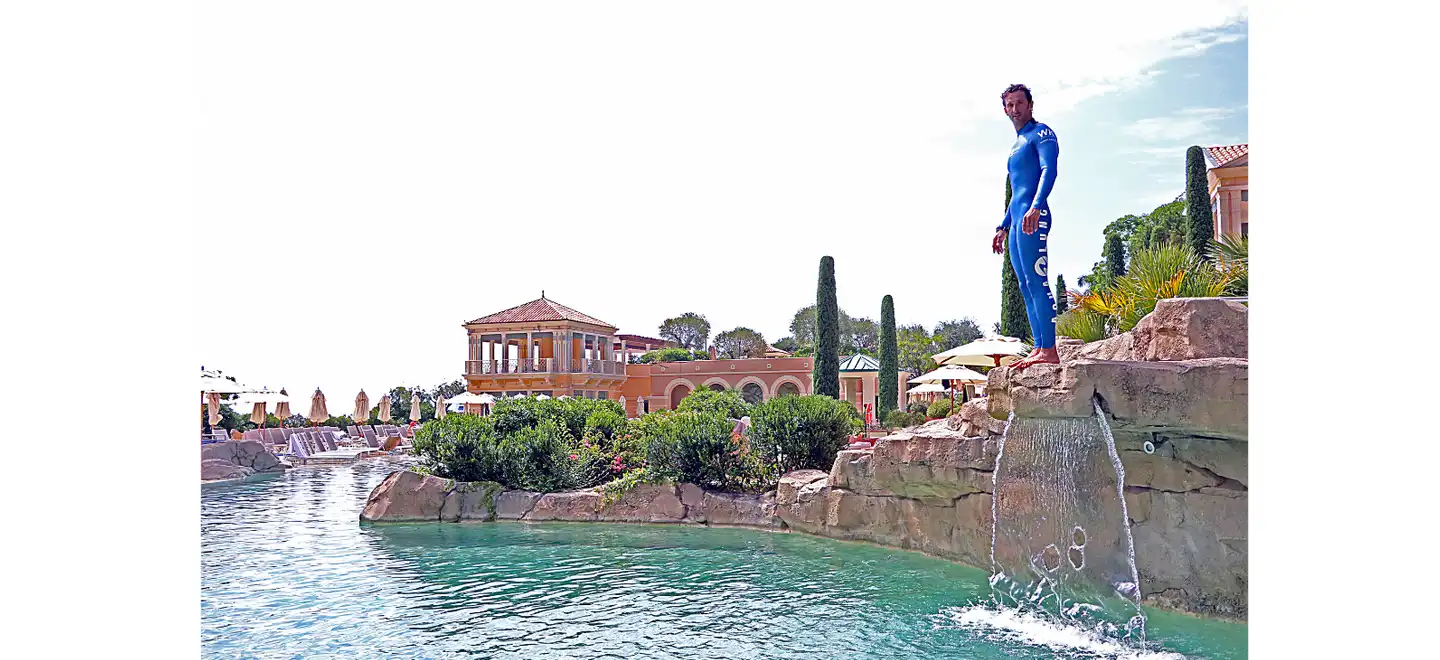
Do you think that activities like snorkelling are the future of maritime tourism?
Pierre Frolla: It is already the case. 70% of what my school does is snorkelling. It is a discipline that is easy to practice. It requires minimal equipment and you are in direct contact with sea creatures like jellyfish, octopuses, cuttlefish and fish. Some years ago, here in the Larvotto reserve during someone’s first snorkelling lesson, we came face to face with a baby whale, it was crazy! The sea is one of the last remaining spaces where we are in direct contact with what we can consider wild nature.
Your most incredible underwater encounters?
Pierre Frolla: I’ll give you two. Some years ago I was filming an animal documentary with children. While diving with Tara, who was 8, we came face to face with a whale and her calf. The calf must have weighed about 4 tonnes, and little Tara weighed perhaps 22 kilos. It started playing with us, so much so that I lost hold of Tara’s hand and the calf came between us. The mother, who was watching from about 15 metres deep, came up to the surface. With her pectoral fin, which is more than 6 metres long, she separated Tara and the calf and created a sort of barrier, so that I could make my way around and get Tara. The whale was watching me the whole time as if to say: “So are you going to take care of your child from now on?” A great lesson in humility.
Another incredible encounter I had was in 2007, while filming in South Africa with tiger sharks. A small male (approximately 3 metres) approached us and began to play. I had never experienced that with a fish and I didn’t think that kind of interaction was possible. Going down, going up, turning… I realised that it was copying my movements, mirroring me. At one point, I let myself sink down on my back, and the shark came over to me, came really close. I held out my hand and it placed its nose on my hand and pushed me gently towards the bottom. Then it moved further away. I held out my hand again, and it came back to touch it. It was totally incredible.
What is your history with sharks?
Pierre Frolla: I was terrified of sharks when I was little… I was part of the Jaws generation, that film really had an impact on me. But I got to know them and I understood that there was only one thing we were scared of: the unknown. I also realised that in the places I dived regularly, for example at the Îlot Infernal in New Caledonia, I was seeing fewer and fewer sharks each year. Until finally I saw none. Therefore, I launched an awareness-raising campaign so that what was seen as a threatening species would instead be recognised as a threatened one. That was one of my first battles to protect the environment, at the end of my sporting career in 2005. When I understood that I could do something else with my diving skills other than retrieving a numbered card at the bottom of the sea.
Was it natural that you would become involved in protecting the sea?
Pierre Frolla: My father, who introduced me to underwater fishing and freediving, taught me to protect the environment in which I lived. I was born in 1975, a time when the sea was very polluted, when there was decades worth of industrial waste in seas all over the world, in particular the Mediterranean. Spills of fuel oil and diesel were also commonplace, as was the emptying of boat holds. None of that exists now, that ended more than 20 years ago. The Ramoge agreement in particular, signed in 1976 by France, Italy and Monaco, put an end to all that. And that momentum came from Prince Rainier.
This year you are the ambassador for the The Sea is Green campaign launched by Monte-Carlo Société des Bains de Mer. What was it about this big campaign that appealed to you?
Pierre Frolla: Firstly, both the company and I are Monegasque, we are from the same place, which makes this partnership meaningful. I find the approach of Monte-Carlo Société des Bains de Mer very intelligent and interesting: bringing the environmental, ecological, human and civic cause to the world of luxury. In the end, real luxury is being able to do important things. It is about time, it is about the capacity to make choices that are in line with our values. And then I also liked the way the Group is approaching the subject, getting the company’s employees on board to take action. For me, bringing everybody together around ideas, a shared vision and values is what is most important.
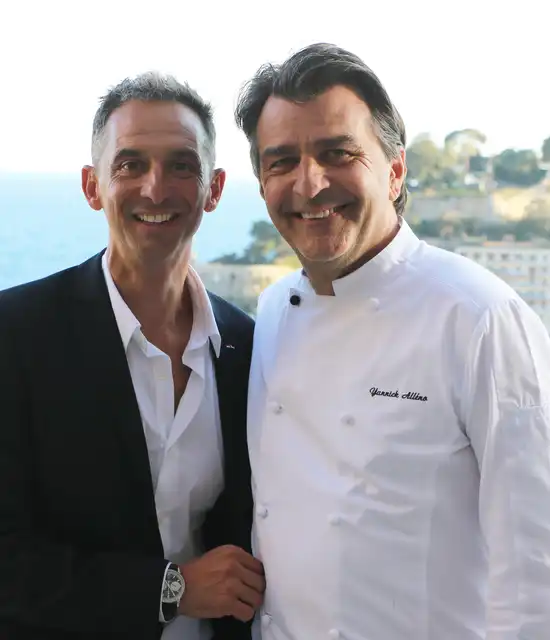
What will your involvement be in the The Sea is Green programme?
Pierre Frolla: The objective of my participation is to share my experience, as my life could inspire others and I have lots of stories to tell. That way I will be able to talk about my travels and cultural encounters, at talks and round tables, with the company’s stakeholders.
You are also going to be diving with volunteers off the coast of the Monte-Carlo Beach. Can you tell us more about this?
Pierre Frolla: I am going to help others discover my world with a dive on the reef dike, an ecological bridge and hatchery for micro-organisms and small animals. Talking about it is good, but it is better to take people by the hand and take them to see it themselves.
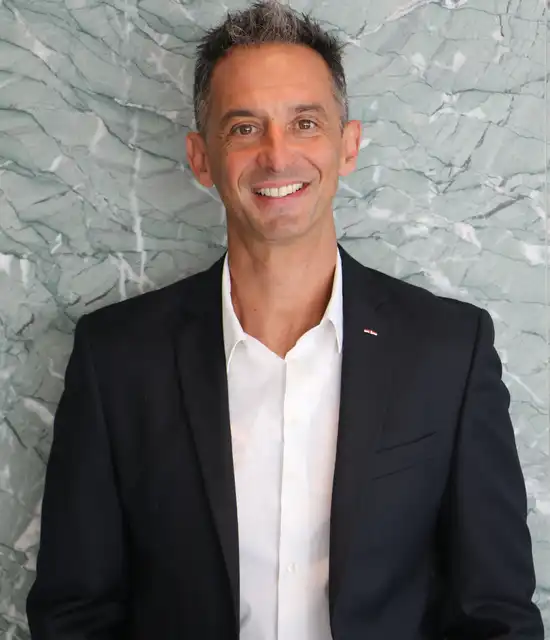
Pictures: Pierre Frolla, ©Fred BUYLE, ©Greg LECOEUR
You might also like…
Pierre Boulez: Celebrating 100 years of modern music in Printemps des Arts Monte-Carlo
For this new edition ahead of the classical music festival, Bruno Mantovani explores the music of this visionary composer, conductor and teacher.
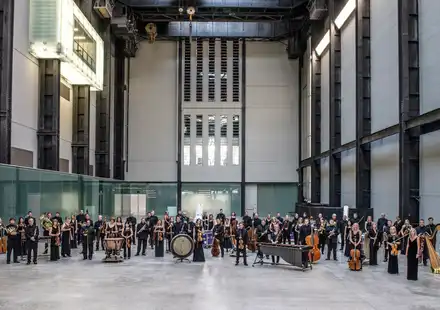
Belle Époque by Bon Entendeur curates the Maona Monte-Carlo’s playlists
Our new summer destination, Maona Monte-Carlo, prepares to reinvent the light and carefree times of the Dolce Vita of the 1960s Riviera. Bon Entendeur came to soak up its glamorous and deliciously retro atmosphere and prepare elegant and fun bespoke playlists for the summer nights.
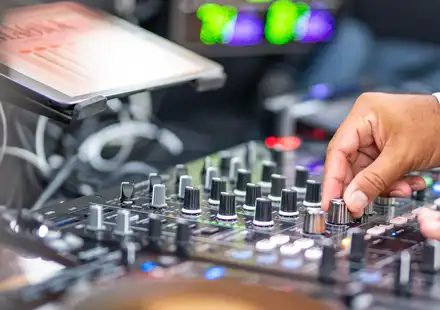
Interview with Gérard Veyrat de Lachenal, 'Mr Wine’ at the Monte-Carlo Bay Hotel & Resort
Discover our interview with the famous head sommelier of the Blue Bay, the gastronomic restaurant of the Monte-Carlo Bay Hotel & Resort in Monaco.
